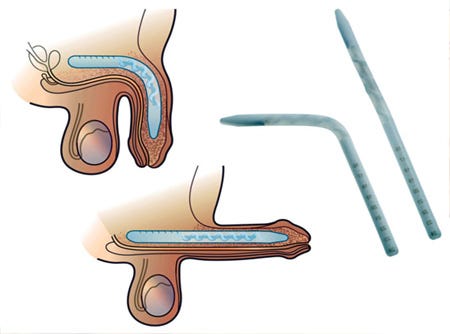Erectile dysfunction (ED) is a common condition where a man has difficulty achieving or maintaining an erection sufficient for sexual intercourse. Beyond its direct impact on sexual function, ED can have broader implications for men’s health and overall well-being.

Impact on Men’s Health:
- Psychological Effects: ED can lead to feelings of embarrassment, frustration, low self-esteem, and anxiety. It can strain relationships and contribute to emotional distress.
- Quality of Life: Men with ED may experience a diminished quality of life due to the inability to engage in sexual activity, which is a significant aspect of intimacy and relationships.
- Underlying Health Conditions: ED can be an early warning sign of underlying health issues such as cardiovascular disease, diabetes, hypertension, or hormonal imbalances. Addressing ED may uncover and manage these conditions, potentially reducing the risk of more serious health complications.
- Relationship Impact: ED can strain relationships with partners due to the challenges it presents in sexual intimacy. Open communication and seeking treatment together can help manage these effects.
Common Treatment Options:
- Lifestyle Changes:
- Exercise and Diet: Regular physical activity and a healthy diet can improve overall cardiovascular health, which is closely linked to erectile function.
- Weight Management: Maintaining a healthy weight can reduce the risk of ED by improving blood flow and overall health.
- Smoking Cessation and Alcohol Moderation: Quitting smoking and limiting alcohol intake can improve erectile function.
2. Psychotherapy: Counseling or therapy can be beneficial for addressing psychological factors contributing to ED, such as stress, anxiety, or depression.
3. Oral Medications:
- Phosphodiesterase-5 (PDE5) Inhibitors: Drugs like sildenafil (Viagra), tadalafil (Cialis), vardenafil (Levitra), and avanafil (Stendra) enhance the effects of nitric oxide, a chemical that relaxes muscles in the penis, allowing for increased blood flow and improved erections.
4. Vacuum Erection Devices: These devices create a vacuum around the penis, drawing blood into the penis to produce an erection. A constriction ring is then placed around the base of the penis to maintain the erection.
5. Injections and Suppositories: Medications such as alprostadil can be injected directly into the base or side of the penis, or inserted as a suppository into the urethra, to improve blood flow and achieve an erection.
6. Surgery: In cases where other treatments have not been successful, surgical procedures such as penile implants may be considered. These implants can restore erectile function by surgically placing rods or inflatable devices into the penis.
7. Hormone Therapy: If ED is caused by hormonal imbalances (e.g., low testosterone levels), hormone replacement therapy may be recommended.
Seeking Help:
If you experience erectile dysfunction, it’s important to consult with a healthcare provider or a urologist. They can help determine the underlying cause and recommend appropriate treatment options tailored to your specific needs and health conditions. Addressing ED not only improves sexual function but can also contribute to overall health and well-being by identifying and managing potential underlying health issues. Open communication with your partner and healthcare provider is key to managing ED effectively and maintaining a fulfilling sex life.
Comments
Post a Comment